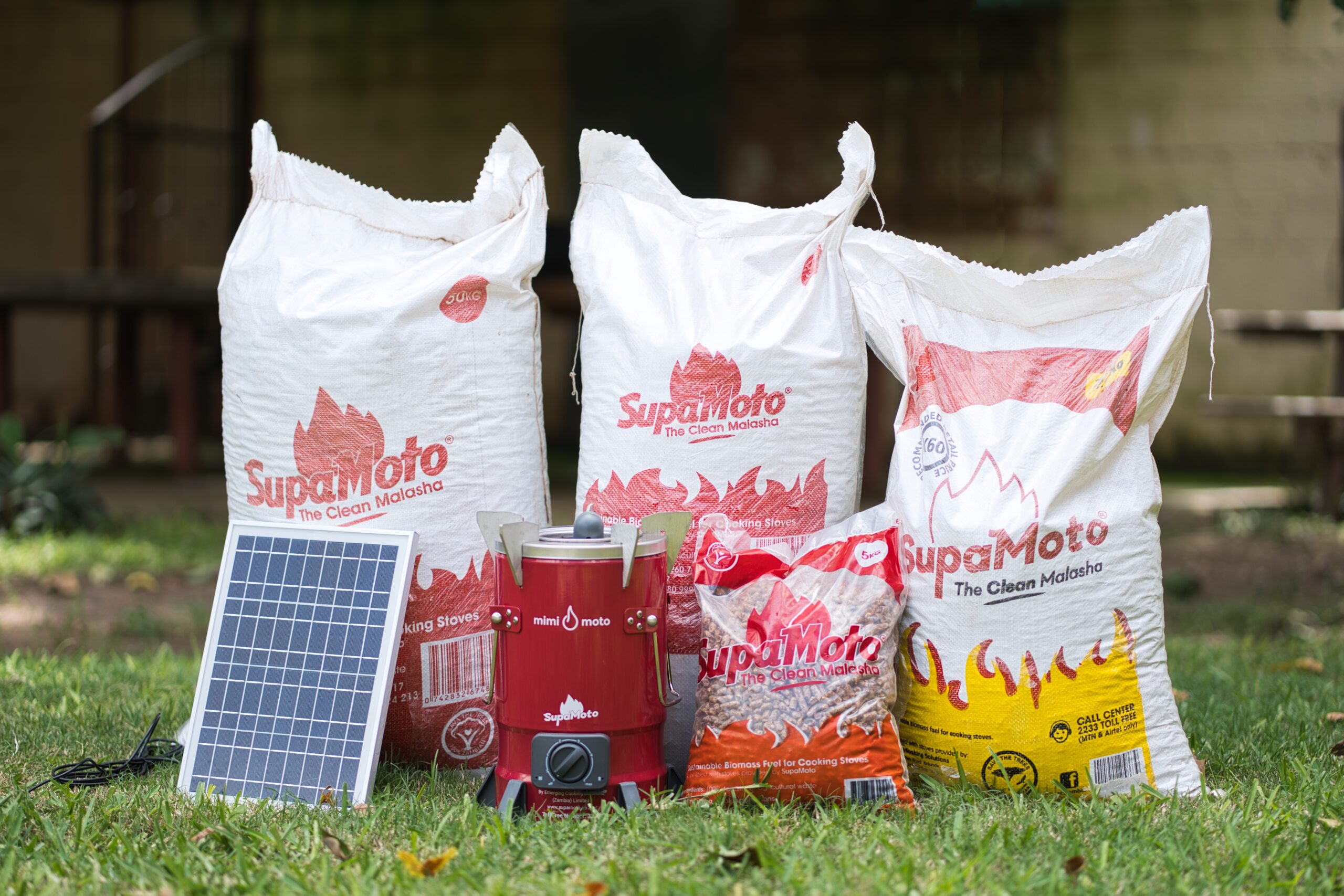
Lusaka, Zambia, 24 February 2025 — The Private Infrastructure Development Group (PIDG) and EDFI Management Company, through the Electrification Financing Initiative (ElectriFI), have invested a total of EUR 4 million to substantially scale the offering of Emerging Cooking Solutions (Supamoto) in Zambia. Supamoto’s clean cooking solution involves the use of biomass pellets, with Internet-of-Things (IoT) enabled, fuel-efficient stoves reducing greenhouse gas emissions and utilising local waste products. The investment, made through InfraCo, PIDG’s project development solution, is among the first that PIDG has made in Africa’s clean cooking sector.
“Over a decade ago, we recognised that waste biomass pellets, and micro-gasification stoves would play a crucial role in the energy transition. We were among the first to highlight pellets as the clean fuel with the greatest potential to compete with charcoal on both price and performance – key factors for widespread adoption. Initially a lone voice with much to prove, we have now demonstrated a perfect product-market fit, offering significant savings to end-users while maintaining strong profit margins on fuel. We’re thrilled that this investment, coupled with our proprietary IoT platform, high-performing internet-connected stoves, and upcoming Article 6.2 carbon credit program in partnership with the Zambian government, will enable our rapid growth. The moment we’ve been working towards has finally arrived,” says Mattias Ohlson, CEO of the Emerging Cooking Solutions Group.
Today’s investment will enable Supamoto to significantly increase pellet production at its facility in the city of Ndola in Zambia’s Copperbelt region. It will also allow the company to expand its logistics and distribution infrastructure to meet growing demand. The transaction will finance 14,800 new fuel-efficient cookstoves which, it is anticipated, will deliver cost and time savings for up to 74,000 people.
PIDG’s Chief Investment and Project Development Officer for InfraCo, Gilles Vaes, said, “Access to clean cooking is a key driver for improvements in human and planetary health, and the prevention of nature loss. We are proud to be working with colleagues at EDFI Management Company to support Supamoto’s ambitions in Zambia to further this goal. Access to clean cooking disproportionately benefits women, however, there are large data gaps on the topic for Zambia. By increasing our understanding of exactly how women benefit from this project, we will seek to plug some of those data gaps. By supporting Supamoto to grow its workforce four-fold over the next five years, our investment is also promoting sustainable economic growth here in Zambia.”
Rodrigo Madrazo, CEO of EDFI Management Company said, “At EDFI Management Company, we are committed to supporting innovative solutions that address both energy access and climate change. Our investment in Supamoto aligns perfectly with this mission. By scaling up clean cooking solutions in Zambia, we are contributing to significant reductions in greenhouse gas emissions and improving the lives of thousands of families. This project demonstrates how smart, sustainable technologies can create positive impacts at both the household and global levels. We’re excited to partner with PIDG and Supamoto in this endeavour, which we believe will serve as a model for clean cooking initiatives across Africa.”
The Supamoto investment has been supported by a EUR 2.5m commitment from PIDG InfraCo (Africa), supported by the governments of United Kingdom, the Netherlands and Switzerland.
The EDFI Management Company investment in Supamoto falls under its dedicated window ElectriFI Zambia, a strategy funded by the 11th European Development Fund for Zambia and designed specifically for the country, in close collaboration with the government, local authorities and the EU delegation to Zambia and the Common Market for Eastern and Southern Africa (COMESA).
The transaction has also been supported by GET.invest, a European programme that mobilises investment in renewable energy in developing countries.
The Modern Cooking Facility for Africa (MCFA) has provided Supamoto with a EUR 0.6m fixed grant, and a Results Based Financing grant of EUR 1.4m. This funding enables Supamoto to supply stoves to customers with minimal upfront cost. As a subscription-based utility using IoT enabled stoves, Supamoto can monitor actual fuel use, using that data to sell high-quality carbon credits on certified carbon markets under Article 6.2.[i] It is anticipated that, as carbon markets grow, the sale of carbon credits will support long term efforts to keep stoves affordable for customers on low incomes.
Once operating at scale, it is anticipated that Supamoto will attract further private sector investment to grow its offering across sub-Saharan Africa.